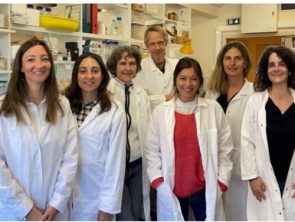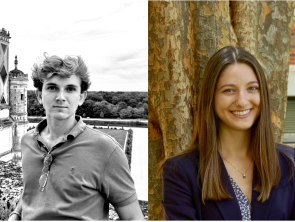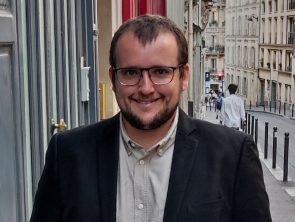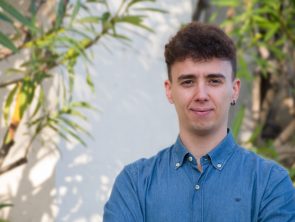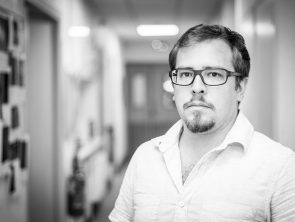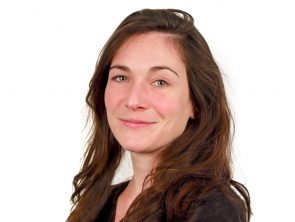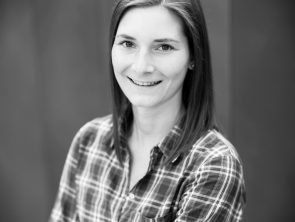Get to know iBV members better with Quick Q&A Portraits
Elodie Grégoire : Plus or minus three amino acids in Wt1 makes the sex difference!
https://www.science.org/doi/10.1126/science.add8831 What are the genetic cascades controlling sexual determinism making us men or women? A gene, Wt1, was previously shown to trigger sex reversal, but the specific roles of its splice isoforms (+ and –KTS), identified by the lab of Andreas Schedl, remained an open question for more than twenty years (Hammes et al., Cell.
Nicolas ROBY and Emily PLUMB, actors of the revival of the iBV PhD student community
Nicolas Roby, a member of Matteo Rauzi’s team, explains that the revival of the iBV “ PhD pizza club” has its roots in the post-covid era: « We first realized that there were many newcomers at the iBV, but they just did not know each other! » It was time to shake up the student
Antonio SERRANO SALCES: Understanding morphogenesis in the human pathogenic fungus Candida albicans
Morphological changes are critical for the virulence of a range of human fungal pathogens. Antonio SERRANO SALCES postdoctoral work, in Robert ARKOWITZ lab, is focused on understanding morphogenesis in the opportunistic human pathogenic fungus Candida albicans. Fungi grow by hyphal extension at the apex, and the transitions between yeast-to-hyphae (filamentation) and hyphae-to-hyphae (hyphal branching) are
Anna GARRIDO: A new strategy to convert D cells of the gastrointestinal tract into insulin-producing beta-cells.
Type 1 diabetes is an autoimmune disease that affects more than 40 million people worldwide. In these patients, the beta pancreatic cells that produce insulin, the hormone responsible for reducing blood sugar levels, are destroyed by the body’s immune system. Because the only available treatment consists of regular insulin injections that alter the quality of
Malala RAKOTOBE: Otx-2 and the regulation of anxiety
If everyone can feel sad or depressed at times, mood disorders are more intense and therefore treated as pathologies. What causes mood disorders is not well known. They are sometimes related to dysfunction of the brain reward system and many studies suggest an ontogenetic origin, with both genetics and environmental factors involved, as well as
Pablo ÁVALOS PRADO: Changing our perception of the ion channels
Ion channels are essential players in physiology, underlying nerve impulse and the activation of a wide variety of biological processes in many cell types, including heart beating. Ion channels are protein complexes made up of a pore-forming alpha subunit associated with auxiliary regulatory beta subunits. It is well admitted that auxiliary subunits are specific to
Torsten FELSKE: Reprogramming neurons at post-natal stages
The recently described plasticity of differentiated neurons brings tremendous hope to the field of regenerative medicine, which aims to restore cells damaged by trauma or degenerative diseases. During his PhD work in the group of Michèle Studer at iBV, Torsten Felske ectopically overexpressed a combination of nuclear factors to efficiently reprogram mouse post-natal cortical neurons
Perrine ROYAL: How migraine strikes
Severe migraine attacks cause intense head pain, impair daily activities of 15% people worldwide and are classified among the most disabling illnesses. Migraine tends to run in families and recent researches revealed genetic clues to its biological roots. But a major breakthrough in the fight against this condition was achieved by Perrine Royal, a PhD
Anaëlle GRABEK: Sexual dimorphism in adrenal cortex regulation
How can we explain sexual disparities in health and illness? The thesis work of Anaëlle Grabek on the effect of gonadal sex on adrenal cortex homeostasis, supervised by Andreas Schedl and Marie-Christine Chaboissier, is a big step forward in this fascinating and quickly growing field. The cortex of adrenal glands is divided in three concentric

